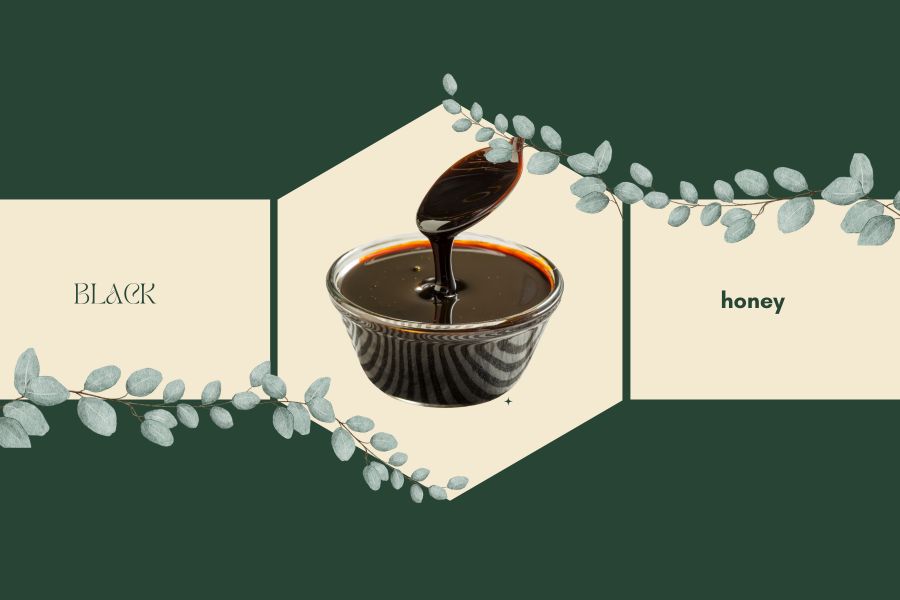Harmful effects of black honey are a growing concern among consumers seeking natural sweeteners with health benefits. While black honey is often praised for its rich flavor and antioxidant properties, it’s important to understand that not all honey varieties are without risks. Black honey, in particular, may carry potential health hazards when contaminated, improperly processed, or consumed in excess. This article will explore these harmful effects, explain why vigilance is necessary, and provide a balanced view for those interested in including this unique honey in their diet.
What is Black Honey?
Black honey, sometimes called “dark honey” or “forest honey,” is a type of honey characterized by its deep, dark color and intense flavor profile. It is typically derived from nectar gathered from resinous trees or wildflowers in dense forests. The distinct color comes from the natural pigments in the nectar and higher mineral content, differentiating it from lighter honey varieties.
Understanding the Harmful Effects of Black Honey
Despite its appealing qualities, black honey can pose certain health risks under specific conditions:
- Botulism Risk: Like all honey, black honey can contain spores of Clostridium botulinum. These spores are particularly dangerous for infants and people with weakened immune systems, potentially causing infant botulism.
- Contamination Issues: Due to its dark, rich composition, black honey can sometimes harbor higher levels of contaminants such as pesticides, heavy metals, and bacteria, especially if sourced from polluted environments.
- Adulteration Concerns: Black honey may be more prone to adulteration with cheaper syrups or additives that degrade its purity, ultimately impacting health negatively.
- Excess Sugar Intake: Like all sweeteners, consuming black honey excessively can contribute to weight gain, raise blood sugar levels, and increase the risk of metabolic diseases.
- Allergic Reactions: Some individuals may experience allergic reactions to black honey, particularly if they are sensitive to certain pollens or bee proteins.
Comparing Black Honey to Other Honey Types
| Type of Honey | Color Profile | Common Nutrients | Typical Harmful Risks | Flavor Intensity |
|---|---|---|---|---|
| Black Honey | Dark Brown to Almost Black | Higher minerals & antioxidants | Potential contaminants, botulism spores, adulteration | Strong, earthy, slightly bitter |
| Light Clover Honey | Light Amber | Lower mineral content, more fructose | Infant botulism risk, pollen allergies | Mild, sweet |
| Golden Honey | Pale Yellow | High fructose, low antioxidants | Infant botulism risk, possible adulteration | Delicate, floral |
Why the Harmful Effects of Black Honey Matter
Understanding the potential harmful effects of black honey is essential for health-conscious consumers and those who rely on natural remedies. Being aware helps in making informed choices about sourcing, storage, preparation, and consumption amounts-reducing avoidable health risks.
Key Reasons to Be Cautious:
- Infants and Vulnerable Populations: Avoiding black honey for children under one year is critical due to botulism risk.
- Source Verification: Ensure your black honey is from reputable, pollution-free environments to minimize contamination.
- Proper Storage: Maintaining honey at appropriate conditions reduces bacterial growth and spoilage.
- Moderation: Even beneficial natural sweeteners can lead to metabolic issues if overused.
Frequently Asked Questions (FAQ)
Is black honey safe to eat every day?
In moderate quantities, black honey is generally safe for adults. However, excessive consumption can lead to increased sugar intake and associated health problems.
Can black honey cause allergic reactions?
Yes, individuals with pollen or bee product allergies may experience reactions. It is advisable to test with small amounts initially.
Is black honey better than regular honey?
Black honey contains higher mineral and antioxidant levels but also poses higher risks if contaminated. Both have benefits and drawbacks depending on quality and usage.
Why is black honey darker in color?
The darker color results from the nectar source, often forest blossoms, and the presence of higher mineral and pigment concentrations.
How can I avoid adulterated black honey?
Buy from trusted sellers who provide transparency about sourcing and processing. Lab-tested certifications can also help ensure purity.
Benefits and Value of Knowing About Black Honey’s Harmful Effects
Recognizing the risks associated with black honey empowers consumers to:
- Make educated purchase decisions that prioritize safety and authenticity.
- Use black honey responsibly without risking health complications.
- Identify symptoms early if adverse reactions occur.
- Advocate for better industry standards and transparency in honey production.
Summary
While black honey offers unique flavors and potential health benefits due to its rich mineral and antioxidant content, it is important to be aware of its harmful effects. Contamination, botulism risks for infants, adulteration, allergic responses, and excess sugar intake are critical concerns to consider. Choosing high-quality sources and consuming in moderation can mitigate many risks. A clear understanding of these factors helps you enjoy the advantages of black honey without compromising your well-being.


